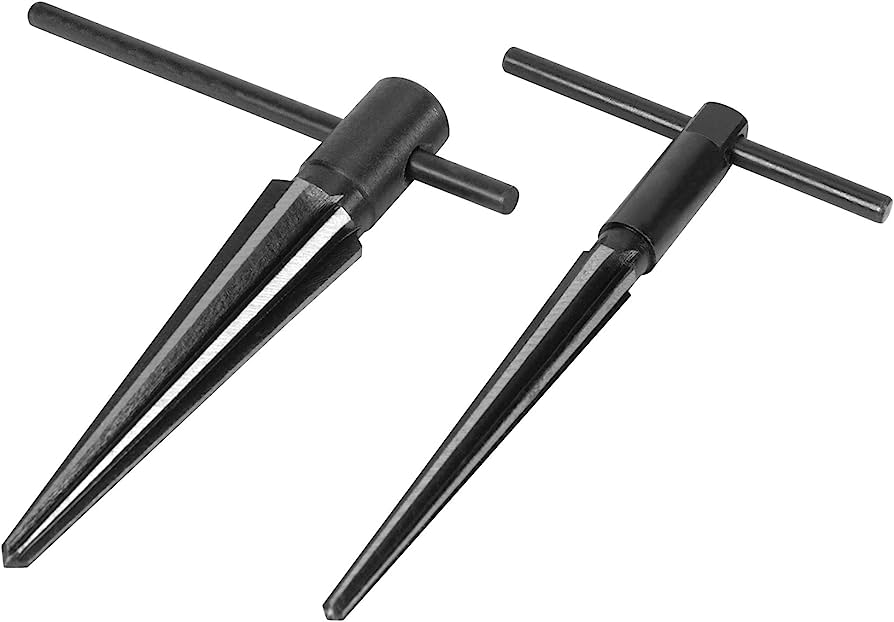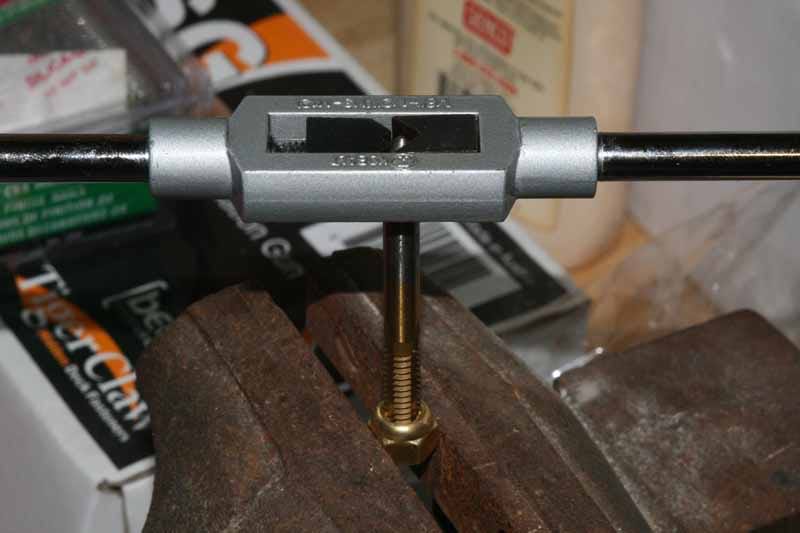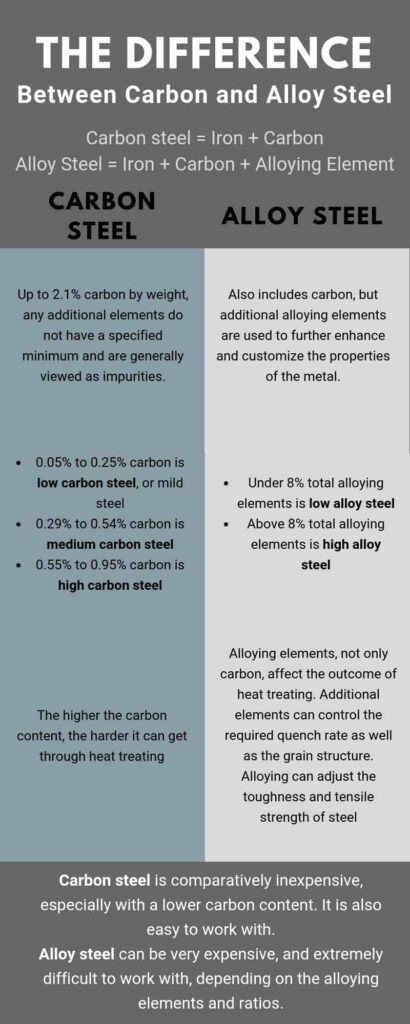Table of Contents
If you’re someone who values precision and accuracy in your work, then you know just how important it is to have the right tools for the job. When it comes to achieving a precise hole diameter, there’s one tool that stands out from the rest: hole reamers. These versatile tools are designed to enlarge and shape holes with utmost precision, ensuring a perfect fit for screws, bolts, or other fasteners. In this article, we’ll take a closer look at hole reamers and explore how they can help you achieve the precise hole diameter you need for your projects.
When it comes to achieving precise hole diameters, hole reamers are the go-to tools for professionals and DIY enthusiasts alike. With their sharp cutting edges and adjustable designs, these tools allow you to remove material from the walls of a hole, gradually expanding its diameter to the desired size. Whether you’re working with metal, wood, or plastic, hole reamers come in a variety of shapes and sizes to suit your specific needs. From hand-held reamers to machine-operated ones, there’s a hole reamer out there for every task. So, if you’re looking to take your precision work to the next level, keep reading to learn more about the versatile world of hole reamers and how they can benefit you.
Hole Reamers: Tools for Achieving Precise Hole Diameter
Hole reamers are essential tools for achieving precise hole diameters in various applications. Whether you’re working with metal, wood, or other materials, hole reamers ensure that your holes are accurately sized and smooth. These tools feature cutting edges that remove small amounts of material as they rotate, gradually enlarging the hole to the desired diameter. With their adjustable design, hole reamers allow for fine-tuning and can be used multiple times. Invest in high-quality hole reamers to achieve professional results and enhance the overall quality of your projects.
Hole Reamers: Tools for Achieving Precise Hole Diameter
Hole reamers are essential tools used in various industries to achieve precise hole diameters. Whether you are in construction, manufacturing, or automotive, hole reamers play a crucial role in ensuring accurate and smooth holes. These tools are designed to remove any excess material from the hole, creating a clean and precise diameter. In this article, we will explore the different types of hole reamers, their applications, and the benefits they offer.
The Types of Hole Reamers
There are several types of hole reamers available, each designed for specific applications and materials. Let’s take a closer look at some of the most commonly used ones:
1. Hand Reamers
Hand reamers are versatile tools that can be used manually or with a tapping tool. They are commonly used for reaming holes in metal, wood, and plastic materials. Hand reamers usually have a tapered design, allowing for easy insertion into the hole. The cutting edges on the reamer remove material as it is rotated, gradually enlarging the hole to the desired diameter.
2. Machine Reamers
Machine reamers, also known as chucking reamers, are designed for use with drill presses, milling machines, and other automated equipment. These reamers have straight shanks that fit into the machine’s spindle and are secured by a chuck. Machine reamers are available in various styles, including straight-flute, spiral-flute, and helical-flute, allowing for efficient material removal and improved hole finish.
3. Adjustable Reamers
Adjustable reamers, as the name suggests, can be adjusted to achieve different hole diameters. They are commonly used in applications where a single reamer needs to be used for various hole sizes. Adjustable reamers have multiple cutting edges that can be expanded or contracted by adjusting a screw or nut mechanism. This versatility makes them a cost-effective option for industries that require flexibility in hole sizes.
4. Tapered Reamers
Tapered reamers are specifically designed for creating tapered holes. They are commonly used in applications such as plumbing, where pipes need to be connected securely. Tapered reamers gradually enlarge the hole diameter while maintaining a consistent taper angle. This ensures a tight and secure fit between the tapered surfaces, preventing leaks or movement.
Applications of Hole Reamers
1. Metalworking
In the metalworking industry, hole reamers are used extensively for creating precise holes in various metal materials. Whether it’s for machine parts, automotive components, or aerospace applications, hole reamers ensure that holes meet strict tolerances and provide a smooth finish. Reaming is often performed after drilling or boring to remove any irregularities and improve the overall quality of the hole.
2. Woodworking
Hole reamers are also valuable tools in woodworking projects. They are commonly used to create clean and precise holes for dowels, screws, and other fasteners. Reaming the holes ensures a proper fit, allowing for secure and stable connections between wood pieces. Additionally, hole reamers can be used to enlarge existing holes or adjust hole sizes as needed.
3. Plumbing
In plumbing applications, hole reamers are essential for creating accurate holes in pipes and fittings. This ensures a proper fit and prevents leaks or blockages. Tapered reamers, in particular, are commonly used to create tapered holes for pipe connections, ensuring a tight and secure seal.
4. Automotive
The automotive industry heavily relies on hole reamers for various applications, including engine components, chassis assembly, and bodywork. Precise holes are crucial for proper alignment and fitment of parts, ensuring the overall functionality and safety of the vehicle. Hole reamers help achieve the required hole diameters and tolerances, resulting in efficient and reliable automotive systems.
5. Construction
In construction projects, hole reamers are used for drilling and reaming holes in concrete, masonry, and other building materials. These reamers ensure accurate and precise holes for anchor bolts, fasteners, and electrical conduits, among other applications. The use of hole reamers improves the strength and stability of the structures, allowing for secure and durable connections.
The Benefits of Using Hole Reamers
1. Accurate Hole Diameter
One of the primary benefits of using hole reamers is achieving precise hole diameters. By removing any excess material, hole reamers ensure that the holes are within the required tolerances. This accuracy is crucial for proper fitment of components, allowing for smooth assembly and operation.
2. Improved Hole Finish
Hole reamers also contribute to the overall finish quality of the holes. The cutting edges of the reamer create clean and smooth hole walls, eliminating any burrs or rough surfaces. This improves the aesthetics of the hole and reduces the risk of damage or wear on inserted components.
3. Enhanced Hole Alignment
Using hole reamers helps achieve precise hole alignment, especially when drilling through multiple layers or mating parts. The reaming process ensures that the holes are aligned correctly, allowing for proper connection and alignment of components. This is particularly important in industries such as aerospace, where precision and alignment are critical.
4. Increased Hole Strength
By reaming the holes, the structural integrity and strength of the holes are improved. The removal of excess material reduces stress concentrations and potential weak points, resulting in stronger and more durable connections. This is particularly important in load-bearing applications, where the strength of the holes directly impacts the overall structure.
5. Cost Savings
Using hole reamers can lead to cost savings in various ways. By achieving accurate hole diameters, rework and potential component failures are minimized, reducing overall costs. Additionally, the improved alignment and fitment of components result in better overall system performance, reducing maintenance and replacement costs in the long run.
Conclusion
In conclusion, hole reamers are essential tools for achieving precise hole diameters in various industries. Whether it’s metalworking, woodworking, plumbing, automotive, or construction, these tools play a crucial role in ensuring accurate and smooth holes. The different types of hole reamers, such as hand reamers, machine reamers, adjustable reamers, and tapered reamers, offer versatility and flexibility for different applications. The benefits of using hole reamers, including accurate hole diameter, improved hole finish, enhanced hole alignment, increased hole strength, and cost savings, make them indispensable in achieving high-quality and reliable results. So, next time you need to create a precise hole, consider using a hole reamer for the best results.
Key Takeaways: Hole Reamers – Tools for Achieving Precise Hole Diameter
- Hole reamers are specialized tools used to achieve precise hole diameter in various materials.
- They come in different sizes and types, such as hand reamers and machine reamers, to suit different applications.
- Reamers are commonly used in industries like manufacturing, automotive, and construction.
- Using hole reamers ensures accurate hole dimensions and improves the quality of finished products.
- Proper maintenance and sharpening of reamers are essential to maintain their effectiveness and longevity.
Frequently Asked Questions
What are hole reamers?
Hole reamers are tools used for enlarging or smoothing out holes in various materials, such as metal, wood, or plastic. They typically have a cylindrical shape with cutting edges along the outer surface. The cutting edges remove material as the reamer is rotated, resulting in a more precise and accurately sized hole.
Hole reamers come in different types and sizes to accommodate various hole diameters and materials. They can be used manually with a handle or powered by a machine. These tools are commonly used in industries such as manufacturing, construction, and automotive to achieve precise hole diameter requirements.
Why are hole reamers important for achieving precise hole diameter?
Precise hole diameter is crucial in many applications, especially when it comes to fitting parts or components together. Hole reamers play a vital role in achieving this precision by removing any excess material or irregularities from the hole walls. They ensure that the hole has a smooth and accurately sized diameter, which is essential for proper alignment and functionality.
Hole reamers also help improve the overall quality of the hole, reducing the risk of cracks, burrs, or rough edges. By using a reamer, you can achieve the desired hole diameter within tight tolerances, ensuring a precise fit and enhancing the overall performance of the assembled parts or components.
What types of hole reamers are available?
There are several types of hole reamers available, each designed for specific applications and materials. Some common types include hand reamers, machine reamers, adjustable reamers, and chucking reamers.
Hand reamers are manually operated and often used for small-scale projects or when precision is required in hard-to-reach areas. Machine reamers, on the other hand, are designed to be used with power tools or machines for larger-scale operations. Adjustable reamers can be adjusted to accommodate various hole sizes, making them versatile tools. Chucking reamers are specifically designed for use in drill presses or milling machines.
How do I choose the right hole reamer?
Choosing the right hole reamer depends on various factors, including the material you are working with, the desired hole diameter, and the specific application. Consider the following when selecting a hole reamer:
1. Material: Different materials require specific reamer types and coatings. Ensure the reamer is suitable for the material you are working with, such as high-speed steel reamers for metal or carbide-tipped reamers for abrasive materials.
2. Hole diameter: Determine the exact hole diameter you need and select a reamer that can achieve that size accurately.
3. Type of reamer: Consider the nature of your project and choose the appropriate type of hole reamer, whether it’s a hand reamer, machine reamer, adjustable reamer, or chucking reamer.
4. Quality and brand: Opt for reputable brands and choose high-quality reamers to ensure durability and precision.
How do I use a hole reamer effectively?
Using a hole reamer effectively involves proper technique and precautions. Here are some essential steps to follow:
1. Secure the workpiece: Ensure the material you are working on is securely clamped or held in place to prevent any movement during the reaming process.
2. Lubrication: Apply a suitable cutting oil or lubricant to the reamer to reduce friction and prolong its lifespan. This also helps in achieving a smoother finish.
3. Steady rotation: Rotate the reamer in a clockwise direction at a consistent speed. Avoid applying excessive force, as it may lead to damage or breakage.
4. Regular inspection: Periodically inspect the hole to check for accuracy and remove any chips or debris that may accumulate during the reaming process.
5. Safety precautions: Wear appropriate safety gear, such as goggles and gloves, to protect yourself from any potential hazards. Follow all safety guidelines and instructions provided by the manufacturer.
Holier than Thou: Precision Holes by Drilling, Boring, and Reaming
Final Summary: Achieve Precision with Hole Reamers
With hole reamers, achieving precise hole diameter has never been easier. These versatile tools offer a reliable and efficient solution for a wide range of applications. From woodworking to metalworking, hole reamers provide the accuracy and consistency needed to ensure a perfect fit every time.
In conclusion, hole reamers are essential tools for any project that requires precise hole diameter. Whether you’re a professional craftsman or a DIY enthusiast, investing in high-quality hole reamers will greatly enhance the quality of your work. With their ability to remove material and fine-tune hole dimensions, these tools offer unmatched precision and versatility. So, whether you’re working on a woodworking project or need to achieve precise measurements in metalworking, hole reamers are your go-to tools. Upgrade your toolbox today and experience the difference that hole reamers can make in achieving the perfect fit for your projects.
Request a quote today!
[contact-form-7 id="1578" title="Contact form"]
Please compress the file into a ZIP or RAR file before uploading. Alternatively, send through your RFQ by email.
enquires@unitymanufacture.com





